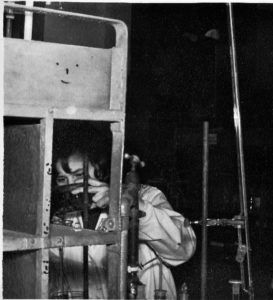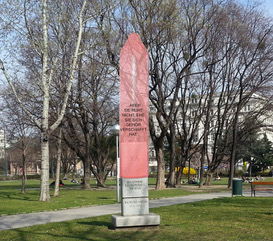Workshop XIV, Elisabeth Dokulil, 22 October 2020
Elisabeth Dokulil holds a PhD in biochemistry and is a practicing psychotherapist, based in Vienna, Austria. Her reflection on oil was triggered by her puzzlement about why oil was used mostly as a fuel, such as for transport and heating. For Dokulil, this is a narrow use of a powerful resource. Why do we simply burn it?
Psychoanalytic theory introduced Dokulil to a Freudian perspective on culture. In his book Civilization and Its Discontents (1930), Freud categorises a person’s instincts into two drives: the Eros drive and the Thanatos drive. While Eros seeks to care, Thanatos seeks only to destroy, which is also part of our biological need to die. There is this permanent conflict between wanting to care for things and having to destroy them.
We should bear this tendency towards destruction in mind when we engage in a reflection about oil. The current state of things is not only the result of capitalism, though capitalism is the worst at safeguarding natural resources. Our addiction to oil, which is connected to greed, stops us from finding alternatives capable of breaking the cycle of addiction.
Elisabeth Dokulil, much like Imre Szeman in his earlier workshop, also talks about Freud’s analysis of how science and technology allow human beings to “become a kind of prosthetic God,” and thus to lead us to believe we dominate nature and to ignore our limitations.
We are in the middle of a crisis: when we buy a car, we don’t necessarily see that we’re destroying the planet. We are not encouraged to see and the educational system has an important role to play in this. Children’s creativity is being cut at too young an age. We could all create our own style and everybody’s own creation can potentially collaborate to make a better world. Instead, we are forced to be part of a mass which encourages us to give up our specific self.
Concerning the arts and science collaboration at the heart of Reflecting Oil, Dokulil is reminded of a poem by Goethe about materiality, The Sorcerer’s Apprentice. Scientists feel they can manipulate everything and that arts and humanities can therefore give science a different perspective – a human approach. Scientists are trying to produce outputs and they usually have to forget themselves. This is why Dokulil herself left science: “I didn’t want to sacrifice my life. As a psychoanalyst, I do not sacrifice myself to institutions. I can invent myself”.
psychotherapy I Freud I destruction
greed I education I creativity I self I mass I Goethe


